Why haven’t ‘grab and go’ airport lounges launched in the UK?
Links on Head for Points may support the site by paying a commission. See here for all partner links.
Airline lounges have remained relatively unchanged for decades. In exchange for a fee (or for buying a business class ticket or having elite status) you get access to a separate space, away from the hustle and bustle of the terminal concourse.
Often that includes a choice of seating ranging from restaurant tables to armchairs and sofas; refreshments and food are included, albeit of varying quality.
What’s the appeal? For business travellers it’s undoubtedly a place to work. Gate areas are designed as high-density waiting areas and not as convenient places to work, with charging ports a happy surprise rather than an expectation. The ready availability of drinks and snacks, meanwhile, means that you don’t have to go through the hassle of justifying every single coffee with your finance department.
For leisure travellers, it’s the chance to sit in comfort and enjoy a glass of sparkling wine before a flight and snack on some “free” food.
Of course, different airlines and lounges manage to deliver varying experiences and some are undoubtedly better than others.
In small airports, a lounge might consist of tea and biscuits in a room the size of an average-sized living room. At the other end of the spectrum, Emirates’ and Qatar Airways’ cavernous lounges at their homes cater to thousands of transiting passengers every hour.
Either way, airport lounges are a booming industry. There’s no doubting the format’s success in recent decades with hundreds, if not thousands, of new openings. These have been led by independent lounge operators such as Aspire and Plaza Premium, which pioneered the airline-agnostic lounge in 1998.
You don’t need to be flying in business class, either. Lounge access is bundled in everything from credit cards to package holidays, whilst companies such as Priority Pass and DragonPass will sell you membership cards as if it’s access to a private members’ club.
Have we reached ‘peak lounge’?
It’s hard to argue against the proliferation of airline lounges. More lounges equals more competition and more choice, with different lounges catering to varying markets. Take Gatwick, for example, which in addition to a number of airline lounges also features four unique brands owned by Collinson (co-incidentally also the company behind Priority Pass):
- MyLounge: the ‘budget’ entry-level lounge offering aimed at holidaymakers with a ‘shabby chic’ / industrial aesthetic
- Club Aspire: a mid-tier lounge aimed at business travellers
- No1 Lounge: a mid-tier lounge aimed at families and couples going on holiday
- Clubrooms: the exclusive, top-tier lounge offering with table service and a greater choice of food and drink
Manchester Airport, which operates its own lounges, is similarly structured. It has the mainstream Escape Lounge complemented by the more-premium 1903 Lounges. Pre-covid Manchester Airport launched PremiAir (sadly still closed) – a standalone private terminal / lounge which could be booked for as little as £100 in a promotion and included being driven to your aircraft.
Unfortunately, despite their best efforts, lounge operators haven’t been able to keep up with the demand.
Space in airport terminals is at a premium and there comes a point when you run up against what is possible without a costly extension of the terminal building.
This is the problem now faced by Virgin Atlantic, which would like to expand its Heathrow Clubhouse to accommodate increasing numbers of elite SkyTeam passengers but simply hasn’t found a way to do so.
At least in the UK, the cracks are starting to show. It’s not uncommon to have to queue to enter the independent lounges at Gatwick or Luton during peak periods, or even be refused outright.
The problem is less acute across Europe, where credit cards (and therefore bundled lounge access) are less popular.
Are grab-and-go lounges the solution to lounge overcrowding?
Where the US goes, the UK often followers. Lounges are no different.
Capacity issues are a major concern in the United States where credit cards with lounge access are handed out like candy. It’s such an issue that American carriers have moved to a two-tier system of lounges: premium lounges for those actually travelling on a business class ticket (think United’s Polaris or American’s Flagship lounges) and ‘Clubs’ for everyone else.
These Club lounges are often specced to lower standards and serve only basic snacks and drinks. If you want anything more substantial, or an alcoholic drink, you have to pay up.
Lately, US carriers have been trying something new to alleviate congestion: grab-and-go stations. First pioneered by Lufthansa with its ‘Delights to Go’ automated vending concept, the idea is gaining traction across the pond.
Air Canada was first out of the gate with its ‘Air Canada Cafe’ at Toronto Pearson back in 2019. This offers “customers a wide selection of specialty beverages to Grab & Go or to be enjoyed with complimentary Wi-fi in a relaxed, bistro-type setting.”
This is, as the name suggests, closer to a cafe than a full-blown grab-and-go lounge: it still had seating for 109 passengers, albeit in a more casual, coffee house set up.
United took the concept a step further with its ‘United Club Fly’ concept in Denver, which launched last year. This is a tiny lounge – a micro-lounge, if you will – designed for passengers on short connections. With just sixteen seats and standing room for an additional eight, you won’t be loitering here long.
What it does offer is pre-packaged food and drinks such as sandwiches, wraps, salads, yoghurt, fruit cups, cereals, crisps and more. The idea is that you pop in, grab what you need and keep going.
Delta is following with a pilot project, in part to deal with major overcrowding issues at its lounges in New York and Atlanta. Queues to get into the SkyClub are a regular occurrence.
To deal with this issue Delta is issuing vouchers to the Grab and Go station if you are willing to forego the lounge itself. It’s not clear how popular this is or how successful the uptake, but it does at least give passengers a choice.
What about UK lounges?
Oddly, the concept has yet to appear at any UK airports. This is despite the fact that I can, off the top of my head, think of a number of places where a grab and go concept makes sense.
London City Airport
Let’s start with the obvious one first: London City Airport. Whilst convenient, London City has always struggled for terminal space: after all, it’s located on a small strip of land between the Royal Albert and King George V Docks. It has never had an in-terminal lounge (although it did, pre-covid, have a First Class Terminal.)
With plans for the terminal redevelopment in purgatory, the airport is currently modernising and reconfiguring the existing spaces, adding in additional retail and dining space. It is still too small for a fully-blown airport lounge and besides, most passengers arrive 60 minutes or less before departure knowing they can breeze through security and walk onto their aircraft.
It’s the perfect spot for a grab-and-go lounge offering pre-packaged sandwiches, wraps, salads and drinks for anyone on the go.
The costs would be minimal: all you need is a small corner somewhere, and couple of members of staff to restock and scan any ‘purchases’. The cost of the food would be minimal given that a meal deal is widely available on the high street for between £3 and £5.
Heathrow Arrivals lounges
Arrivals lounges are, it seems, a covid casualty. The British Airways arrivals lounge at Heathrow has over 100 shower pods but never appears full; Plaza Premium, which previously operated arrivals lounges at Heathrow Terminals 2, 3 and 4 has permanently closed them.
But here’s an idea: why not offer a grab-and-go station instead? I can see the value in offering a shower and a breakfast bag with choice of sandwich, some coffee, orange juice etc. This cuts out the ‘lounging’ part of the lounge and strips it down to the bare minimum if arriving from a long haul flight.
I can even see the value in arriving from somewhere and being able to pick something up on my way home, rather than having to worry about fixing dinner or ordering in when I arrive. And a bit of hydration on the long tube journey home wouldn’t go amiss ….
Heathrow Terminal 5
BA’s terminal is home to some of the busiest lounges I have ever had the (dis-)pleasure of using. No matter what time of day you are flying, they are almost universally rammed. There’s a reason that we haven’t been able to write fresh reviews of most of them for almost a decade.
Some of this is down to capacity – there simply isn’t enough lounge space. Some of it, surely, is also down to the sheer volume of BA Gold and Silver cardholders and any oneworld Sapphire or Emerald members who are travelling in economy.
One solution could involve opening up an additional grab-and-go outlet in the terminal. This could let you pick up a meal deal and, like Delta, rescind your right to the lounge.
I think this could be a very attractive option for anyone with little time to spend and who is also flying in economy, where all you get is a small bottle of water and some crisps.
For the record, I’m not arguing that BA should ban Gold and Silver cardholders from the lounges if they are travelling in economy; simply that they be given an alternative should they want it. More carrot than stick.
It’s certainly an idea they should consider if and when they come to refurbishing their flagship lounges in Terminal 5.
Conclusion
Are grab-and-go outlets the answer to all the airport lounge woes we’ve been seeing recently? Certainly not. Airlines and airports should continue to invest in full-scale facilities where there is demand.
But there are, I think, a number of opportunities for airlines and airports in the UK when it comes to diversifying the existing lounge offering and giving passengers a choice. If it comes with additional benefits (such as reducing lounge overcrowding) then all the better.
It’s also hard to see how the maths doesn’t work for the independent lounge operating companies. Take Priority Pass, for example, which we believe pays lounge operators around £10 – £12 per passenger. You can easily buy a meal deal at Heathrow or Gatwick for about £5, so the lounge operator has significant capacity to play with.
There is, of course, a third option, and one that we’ve already seen Priority Pass do: offer credit in airport restaurants and cafes. Could this also extend to vouchers for Pret a Manger?
I’m somewhat surprised we haven’t seen the idea take root in the UK but with infrastructure investment unlikely to match growing passenger numbers it can only be a matter of time. Let’s see what emerges.
PS. If you are not a regular Head for Points visitor, why not sign up for our FREE weekly or daily newsletters? They are full of the latest Avios, airline, hotel and credit card points news and will help you travel better. To join our 70,000 free subscribers, click the button below or visit this page of the site to find out more. Thank you.
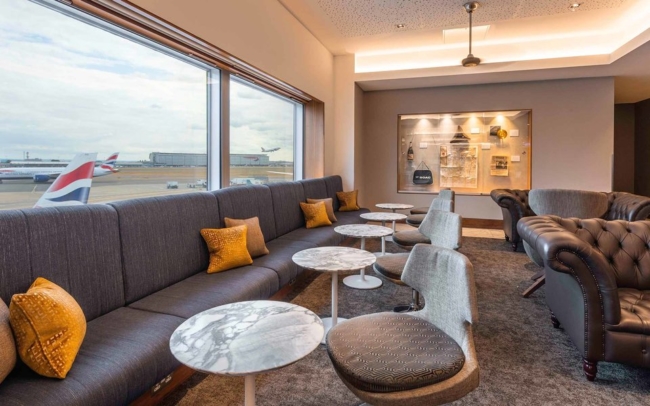
How to get FREE airport lounge access via UK credit cards (July 2025)
Here are the six options to get FREE airport lounge access via a UK credit card.
Your best value option (but no points):
The cheapest route to a Priority Pass airport lounge card is via the Lloyds Bank World Elite Mastercard.
The credit card has a fee of £15 per month, and comes with a Priority Pass which gives unlimited free access for the cardholder. If you add a free supplementary cardholder, they will also receive unlimited free access.
Unlike the version of Priority Pass you receive with American Express, the Lloyds Bank version also lets you access £18 airport restaurant credits.
Even better, the credit card has 0% FX fees and comes with 0.5% cashback. Full details are in my Lloyds Bank World Elite Mastercard review.

Lloyds Bank World Elite Mastercard
A Priority Pass, 0% FX fees and up to 1% cashback for £15 per month Read our full review
Lounge access via American Express cards:
The Platinum Card from American Express comes with two free Priority Pass cards, one for you and one for a supplementary cardholder. Each card admits two so a family of four gets in free. You get access to all 1,500 lounges in the Priority Pass network – search it here.
You also get access to Eurostar, Lufthansa and Delta Air Lines lounges. Our in-depth review of The Platinum Card from American Express is here.
You can apply here.

The Platinum Card from American Express
50,000 bonus points and great travel benefits – for a large fee Read our full review
The American Express Preferred Rewards Gold Credit Card is FREE for the first year. It comes with a Priority Pass card loaded with four free visits to any Priority Pass lounge – see the list here.
Additional lounge visits are charged at £24. You get four more free visits for every year you keep the card.
There is no annual fee for Amex Gold in Year 1 and you get a 20,000 points sign-up bonus. Full details are in our American Express Preferred Rewards Gold Credit Card review here.

American Express Preferred Rewards Gold Credit Card
Your best beginner’s card – 20,000 points, FREE for a year & four airport lounge passes Read our full review
Lounge access via HSBC Premier credit cards (Premier account holders only):
HSBC Premier World Elite Mastercard gets you get a free Priority Pass card, allowing you access to the Priority Pass network. Guests are charged at £24 although it may be cheaper to pay £60 for a supplementary credit card for your partner.
The card has a fee of £290 and there are strict financial requirements to become a HSBC Premier customer. Full details are in my HSBC Premier World Elite Mastercard review.

HSBC Premier World Elite Mastercard
A good package, but only available to HSBC Premier clients Read our full review
Got a small business?
If you have a small business, consider The American Express Business Platinum Card which has the same lounge benefits as the personal Platinum card:

The American Express Business Platinum Card
50,000 points when you sign-up and an annual £200 Amex Travel credit Read our full review
You should also consider the Capital on Tap Pro Visa credit card which has a lower fee and, as well as a Priority Pass for airport lounge access, also comes with Radison Rewards VIP hotel status:
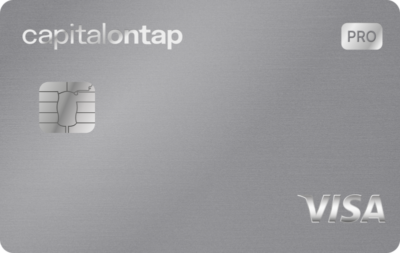
Capital on Tap Pro Visa
10,500 points (=10,500 Avios) plus good benefits Read our full review
PS. You can find all of HfP’s UK airport lounge reviews – and we’ve been to most of them – indexed here.



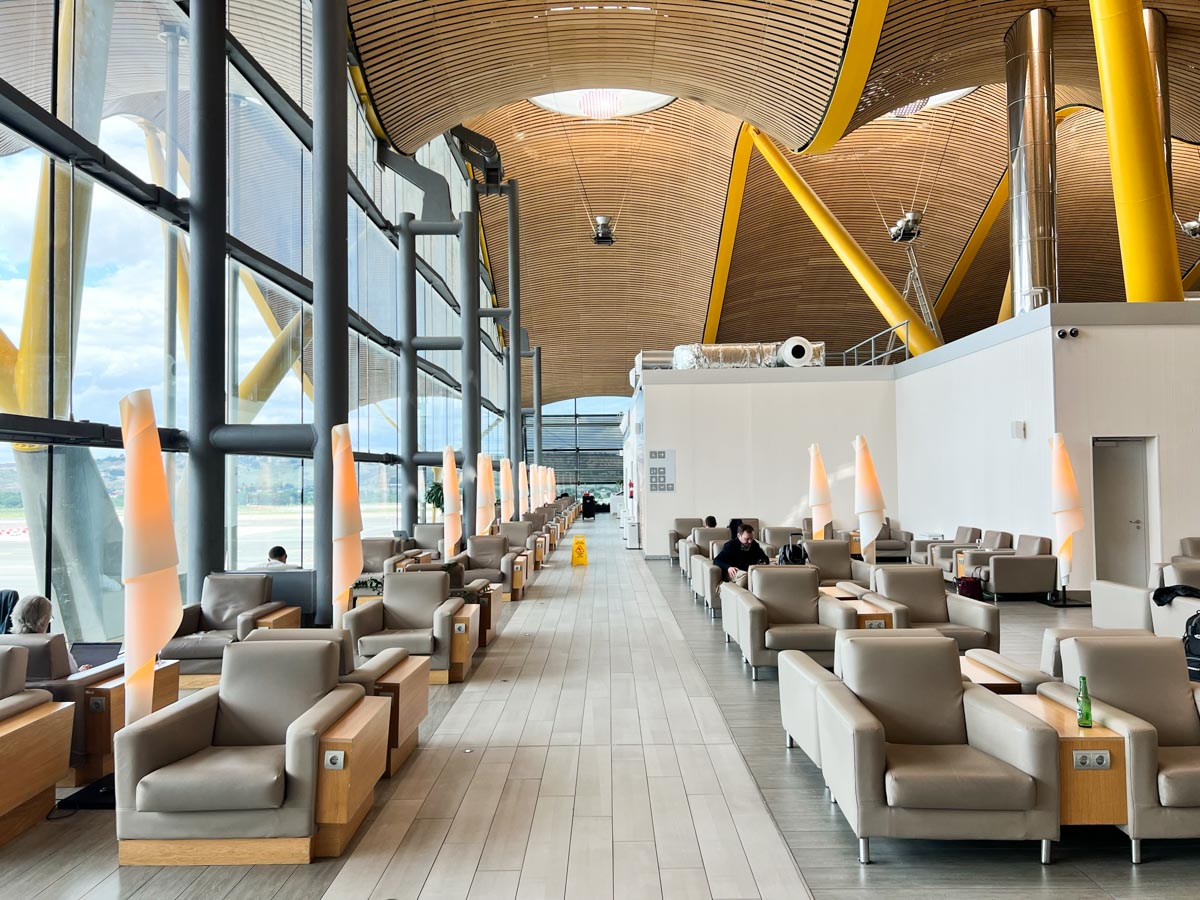
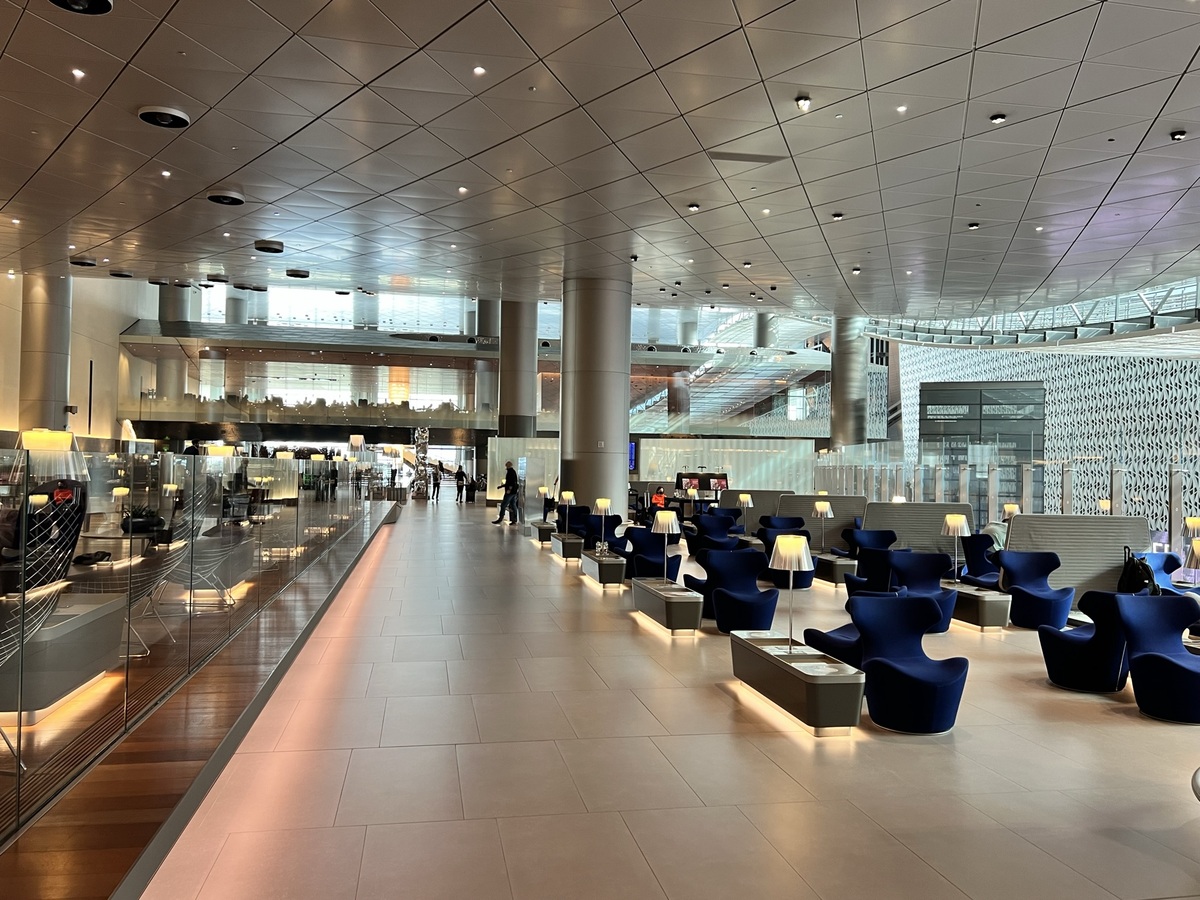

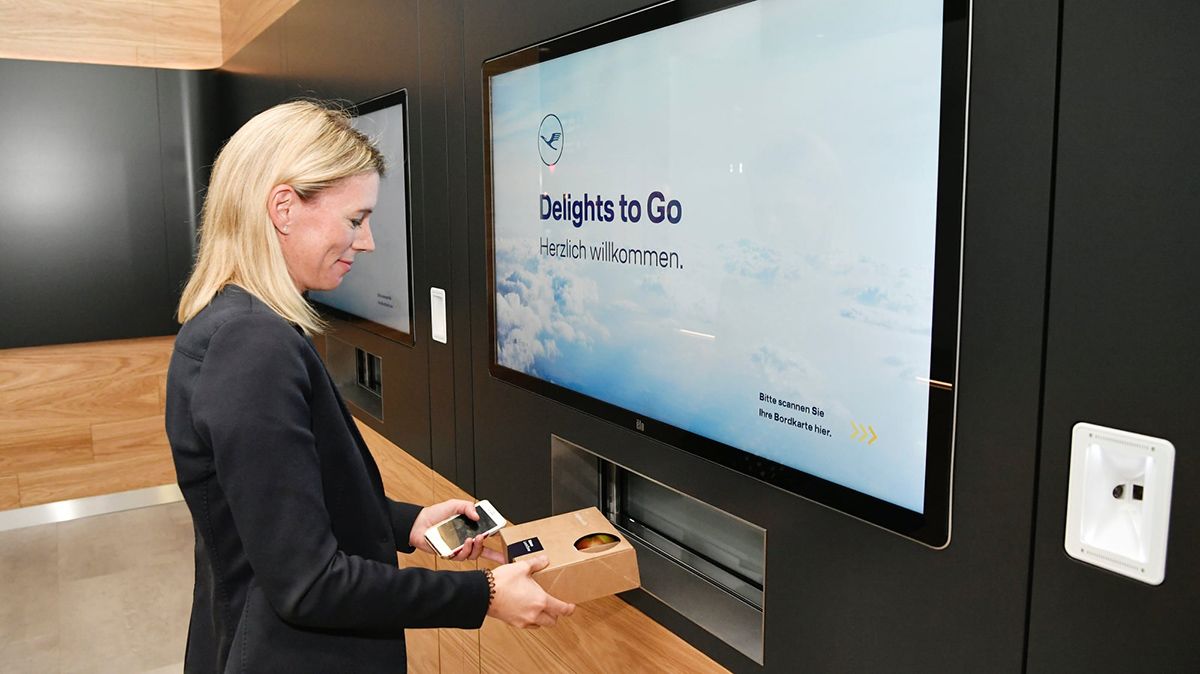
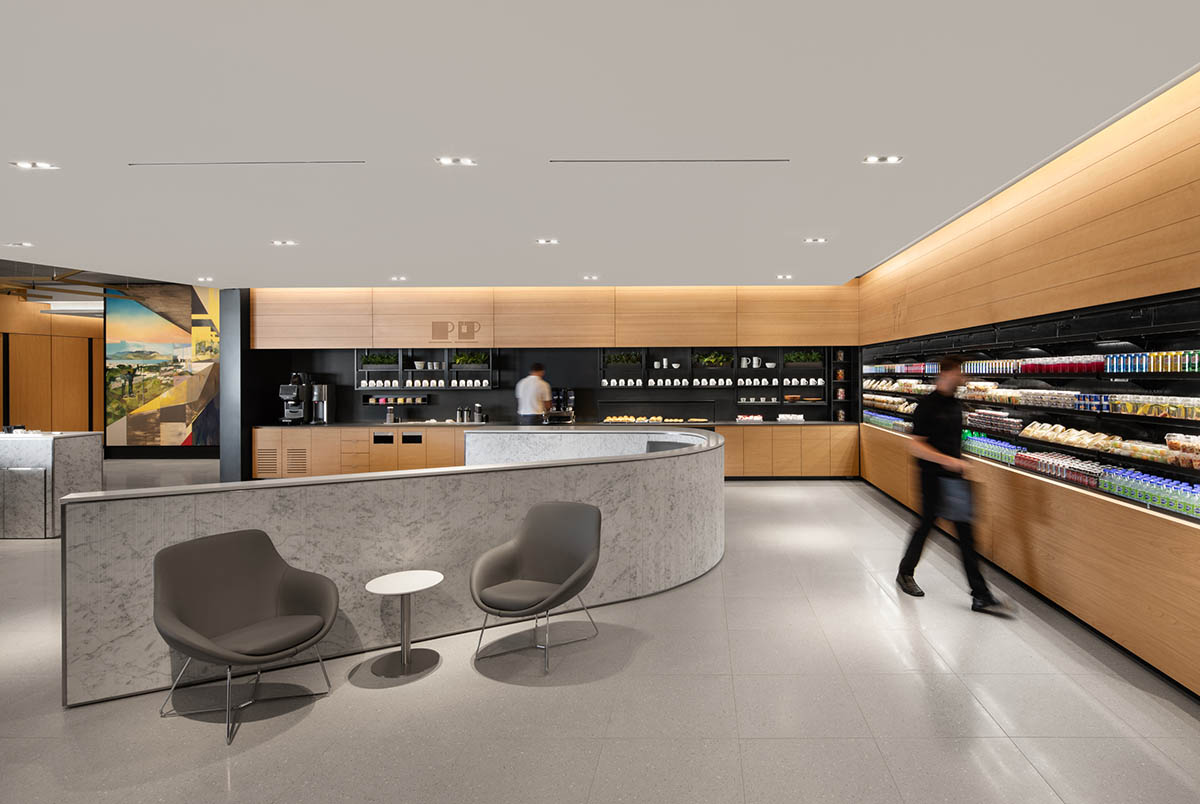

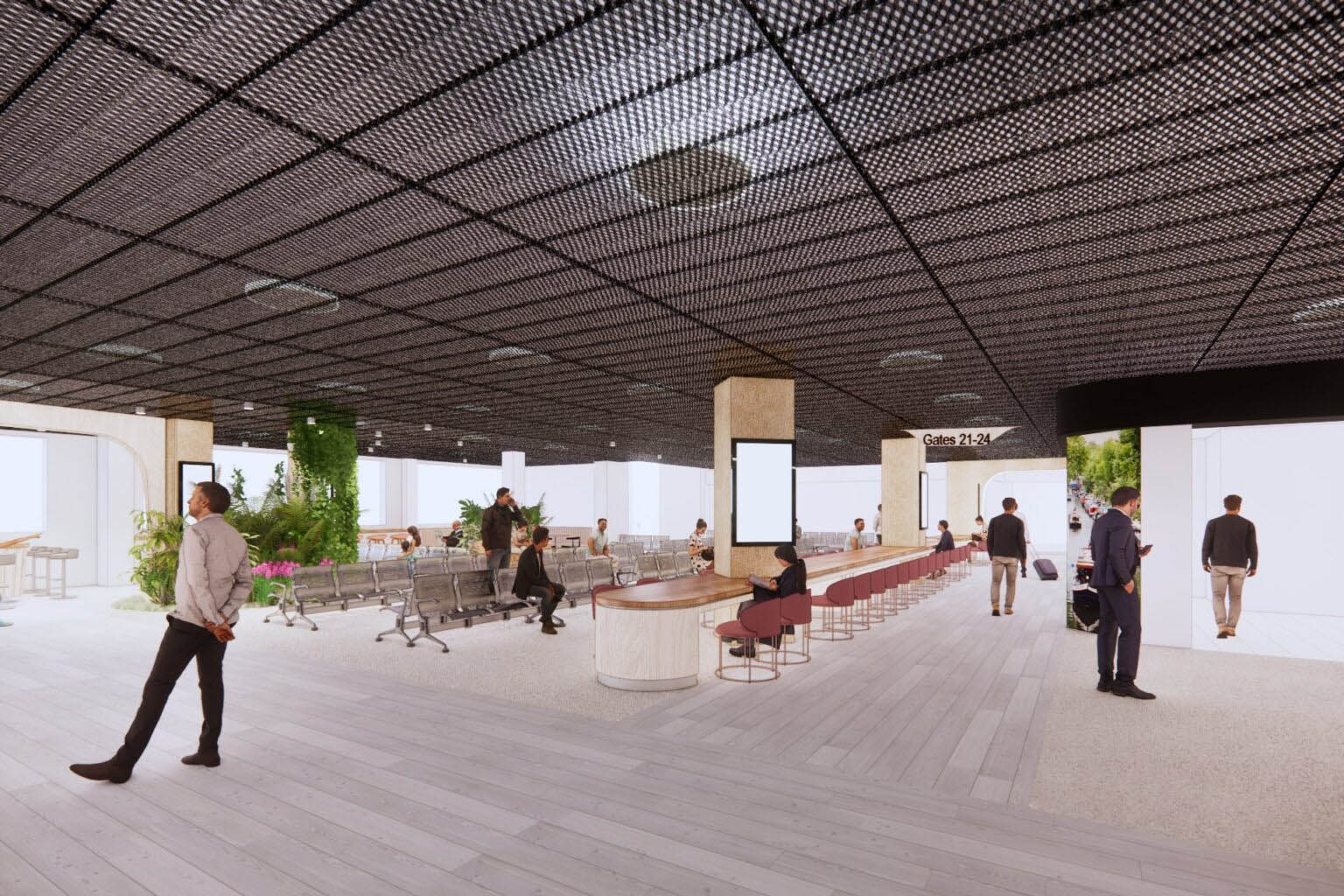







Comments (166)